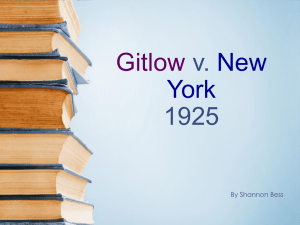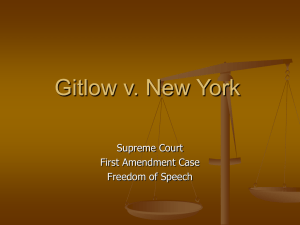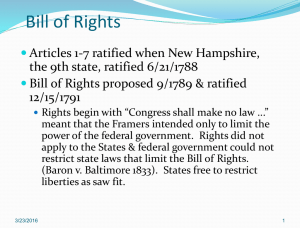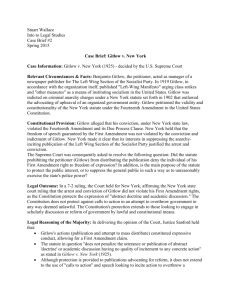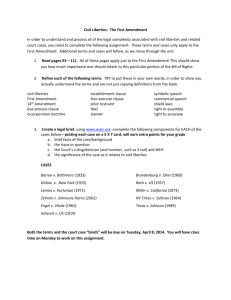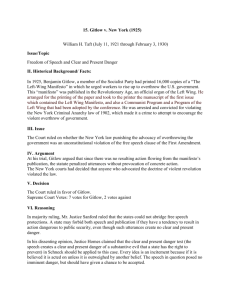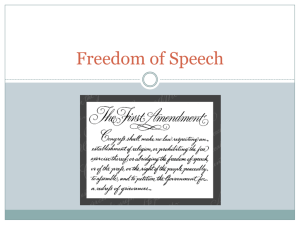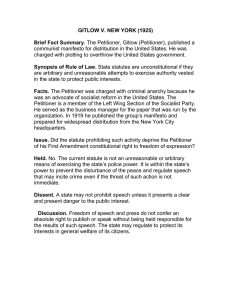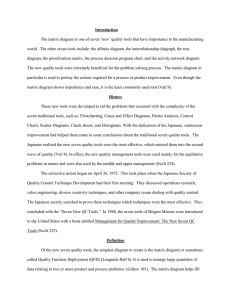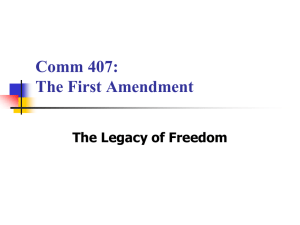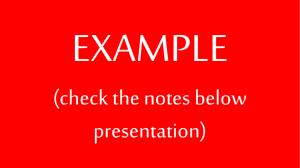File - DeLons Notebook
advertisement
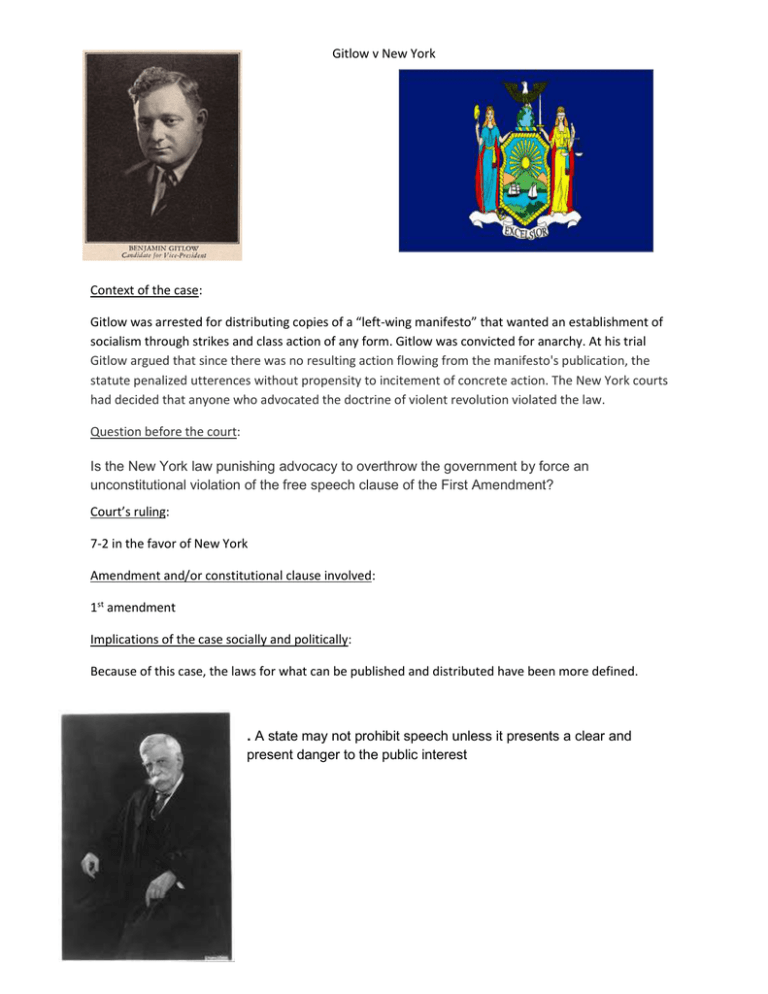
Gitlow v New York Context of the case: Gitlow was arrested for distributing copies of a “left-wing manifesto” that wanted an establishment of socialism through strikes and class action of any form. Gitlow was convicted for anarchy. At his trial Gitlow argued that since there was no resulting action flowing from the manifesto's publication, the statute penalized utterences without propensity to incitement of concrete action. The New York courts had decided that anyone who advocated the doctrine of violent revolution violated the law. Question before the court: Is the New York law punishing advocacy to overthrow the government by force an unconstitutional violation of the free speech clause of the First Amendment? Court’s ruling: 7-2 in the favor of New York Amendment and/or constitutional clause involved: 1st amendment Implications of the case socially and politically: Because of this case, the laws for what can be published and distributed have been more defined. . A state may not prohibit speech unless it presents a clear and present danger to the public interest
